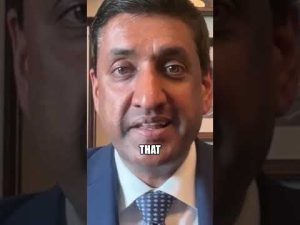**The Great Healthcare Debate: A Hot Topic for Lobbyists and Legislators Alike**
In the bustling world of American politics, few topics ignite a fire quite like healthcare. During a recent Senate hearing, Senator Bernie Sanders took to the floor with a slogan that could rival even the best marketing campaigns: “Make America Healthy Again.” It was a catchy phrase, to be sure, but behind the slogan lay serious discussions about the alarming state of healthcare in the United States. The numbers paint a grim picture—85 million individuals are either uninsured or underinsured. With such staggering statistics, one might think fixing the system would be an urgent priority. But the question remains: who will step up to the plate?
Senator Sanders passionately highlighted the disparity in life expectancy between the working class and the top 1%. While the wealthy may live the good life, complete with personal trainers and health inspectors, many hardworking Americans are facing grim health challenges. For these folks, the dream of just getting a check-up can feel as far away as visiting the moon. The senator proposed that the U.S. should guarantee healthcare as a human right, much like many other nations do. This raises the essential question: Is healthcare a fundamental right, or should it be based on one’s ability to pay?
At the crux of the discussion was Mr. Kenedy, who was thrust into the spotlight as Sanders scrutinized various healthcare practices and policies. When asked if he agreed with Sanders on the stance of healthcare as a human right, Mr. Kenedy offered a nuanced, albeit cautiously diplomatic response. He likened healthcare to free speech, emphasizing that while the latter doesn’t cost anything, healthcare comes with specific costs tied to individual choices—like smoking that last pack of cigarettes. It sounded more like a delicate dance than a decisive answer. It’s clear that this debate is far from over, as different ideologies clash in the public arena.
As the conversation progressed, medications and their exorbitant costs took center stage. The senator brought up the subject of prescription drug pricing. In a world where one could pay ten times more for the same medication in the U.S. than in other countries, it’s no wonder that frustration bubbled to the surface. Sanders pushed for equal pricing across borders, a sentiment echoed by many who believe that the average American should not be gouged for life-saving medications. The idea of the American government negotiating drug prices isn’t just a pipe dream, but things would need to change drastically for that to happen.
The discussion didn’t just end there; it tumbled into the contentious world of climate change and healthcare’s intersection with it. While Senator Sanders sees climate change as an existential threat to public health, others remain skeptical, creating a rift that exemplifies the larger divide in American politics. It’s like a tug-of-war match, where one side is focused on immediate health concerns, while the other side argues about long-term environmental impacts.
Lastly, the hearing veered onto the emotional topic of abortion, an issue that divides the nation like no other. Sanders pointed out the apparent flip-flop that Mr. Kenedy made regarding his stance on a woman’s right to choose. It opened up an even bigger can of worms about consistency and trust in political leadership. After all, if lawmakers can’t fulfill their promises, how can citizens expect real changes when it comes to life-altering decisions?
In a world where healthcare remains a pivotal yet polarizing issue, American citizens are left anxiously scrolling through all the latest headlines, hoping to find solutions instead of a rehearsed game of political ping-pong. The Senate hearing showcased the complexities and ideological rifts that make healthcare reform such a daunting task. As debates rage on and strategies clash, the question lingers: Who will rise to the occasion to truly make America healthy again?







